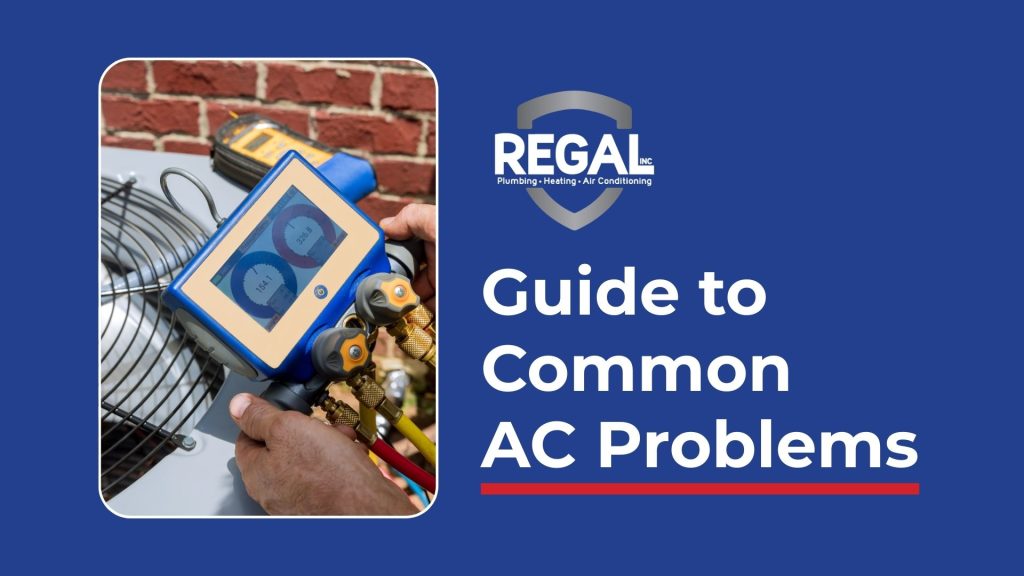When your air conditioner starts acting up during the hot summer months, it can quickly turn from an inconvenience to a major problem if not addressed promptly. Many AC issues are common and can be diagnosed or even fixed by homeowners with some basic troubleshooting.
However, other problems require the expertise of a professional HVAC technician to ensure your system is safe and fully functional. Here’s a guide to common AC problems, simple DIY checks you can try, and clear signs it’s time to call in a pro.

1. AC Won’t Turn On
DIY Troubleshooting Tips:
- Check the thermostat batteries: Many thermostats are battery-powered. If your AC won’t start, try replacing the batteries first.
- Verify thermostat settings: Make sure your thermostat is set to “cool” and the temperature setting is lower than the room temperature.
- Check the circuit breaker: A tripped breaker can cut power to your AC unit. Reset the breaker if necessary.
- When to call a professional: If your AC still won’t turn on after these checks, the issue could be a faulty capacitor, a broken compressor, or wiring problems—all of which require professional diagnosis and repair.
2. Poor Airflow or Weak Cooling
DIY Troubleshooting Tips:
- Change or clean the air filter: A clogged filter restricts airflow and forces your AC to work harder, reducing cooling effectiveness. Replace the filter every 1-3 months during heavy use.
- Inspect air vents: Ensure vents and registers are open and not blocked by furniture or curtains.
- Clear debris from outdoor unit: Leaves, dirt, and debris can obstruct airflow around the outdoor condenser. Gently clean around the unit to improve efficiency.
- When to call a professional: If changing the filter and clearing vents doesn’t improve airflow or cooling, your system might have refrigerant leaks, a failing compressor, or ductwork issues that need professional attention.
3. Strange Noises From the AC Unit
DIY Troubleshooting Tips:
- Rattling or loose parts: Tighten any loose screws or panels you can safely access.
- Clicking sounds: Occasional clicking during startup or shutdown is normal, but constant clicking could indicate relay or electrical issues.
- When to call a professional: Grinding, screeching, or banging noises often mean mechanical problems such as a worn motor bearing, damaged fan blades, or compressor failure. Turn off the unit and schedule a service call immediately to avoid further damage.
5. Water Leaks or Excess Moisture
DIY Troubleshooting Tips:
- Check drain lines: Make sure condensate drain lines aren’t clogged or disconnected. Clearing minor blockages with a wet/dry vacuum may fix the issue.
- Inspect for ice formation: Ice buildup on coils can cause leaks when it melts.
- When to call a professional: Persistent leaks often require a professional to check refrigerant levels, clean coils, or fix drainage issues to prevent water damage to your home.
When DIY Isn’t Enough
Many small AC issues can be fixed with simple maintenance, but give us a call if you notice:
- Persistent or worsening symptoms
- Strange or loud noises
- Water leaks that won’t stop
- Electrical smells or sparks
- System not cooling despite basic checks
If your air conditioner is making strange noises, blowing warm air, or not turning on at all, it’s time to call in a professional HVAC technician. Prompt service can prevent further damage, restore comfort quickly, and ensure your system runs safely and efficiently.
Contact Regal Plumbing, Heating and AC to schedule an appointment for AC services. Committed to Service, Committed to You, Since 1974.
